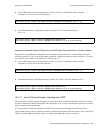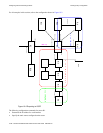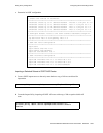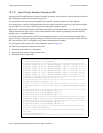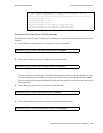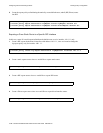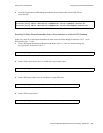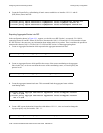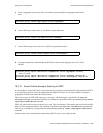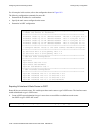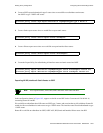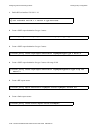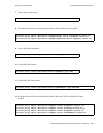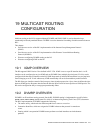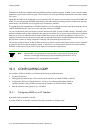
Riverstone Networks RS Switch Router User Guide Release 8.0 18-29
Routing Policy Configuration Configuring Advanced Routing Policies
5.
Create a Aggregate export source since we would to export/redistribute an aggregate/summarized
route.
6.
Create a RIP export source since we would like to export RIP routes.
7.
Create a Direct export source since we would like to export Direct routes.
8.
Create the Export-Policy redistributing all (RIP, Direct) routes and the aggregate route 140.1.0.0/16
into RIP.
18.3.13 Export Policies Example: Exporting to OSPF
It is not possible to create OSPF intra- or inter-area routes by exporting routes from the RS routing table into OSPF. It
is only possible to export from the RS routing table into OSPF ASE routes. It is also not possible to control the
propagation of OSPF routes within the OSPF protocol.
There are two types of OSPF ASE routes: type 1 and type 2. The default type is specified by the
ospf set
ase-defaults type 1/2
command. This may be overridden by a specification in the
ip-router policy create
ospf-export-destination
command.
OSPF ASE routes also have the provision to carry a tag. This is an arbitrary 32-bit number that can be used on OSPF
routers to filter routing information. The default tag is specified by the
ospf set ase-defaults tag
command.
This may be overridden by a tag specified with the
ip-router policy create ospf-export-destination
command.
Interface routes are not automatically exported into OSPF. They have to be explicitly done.
ip-router policy create aggr-export-source aggrExpSrc
ip-router policy create rip-export-source ripExpSrc
ip-router policy create direct-export-source directExpSrc
ip-router policy export destination ripExpDst130 source aggrExpSrc network
140.1.0.0/16
ip-router policy export destination ripExpDst130 source ripExpSrc network all
ip-router policy export destination ripExpDst130 source directExpSrc network all



